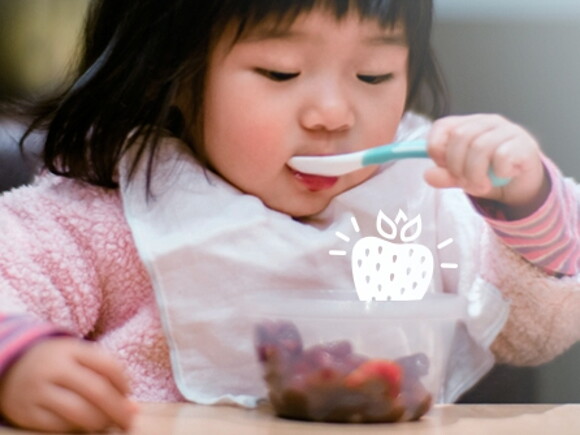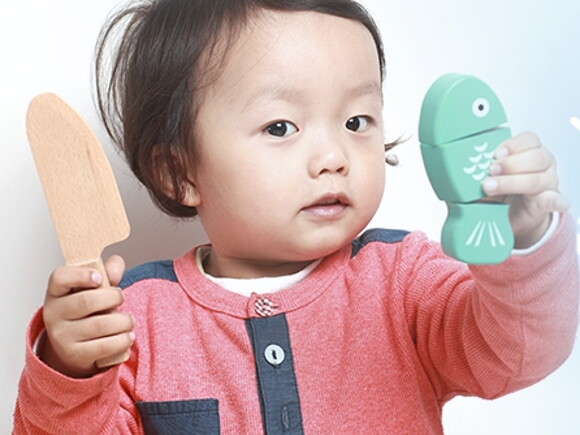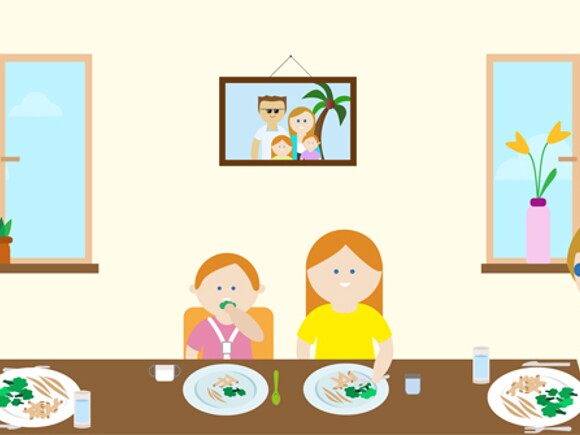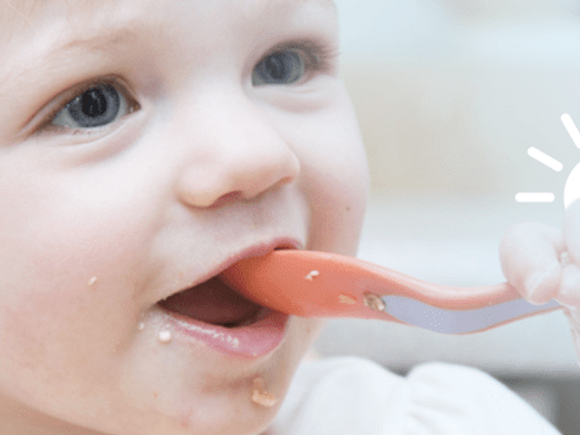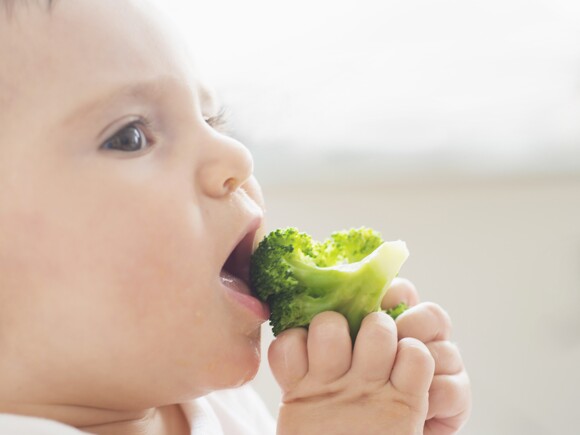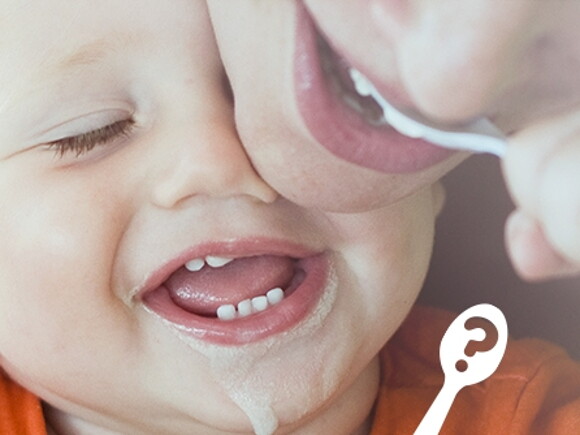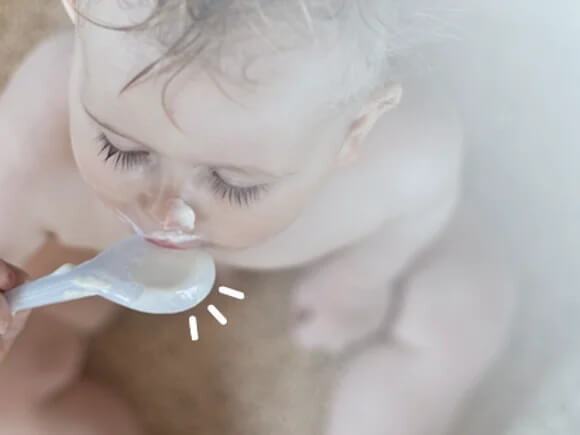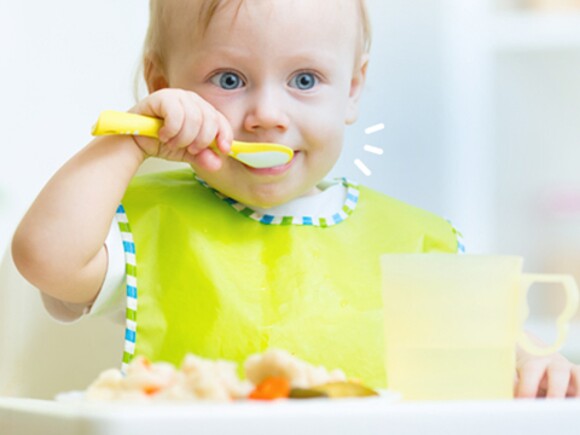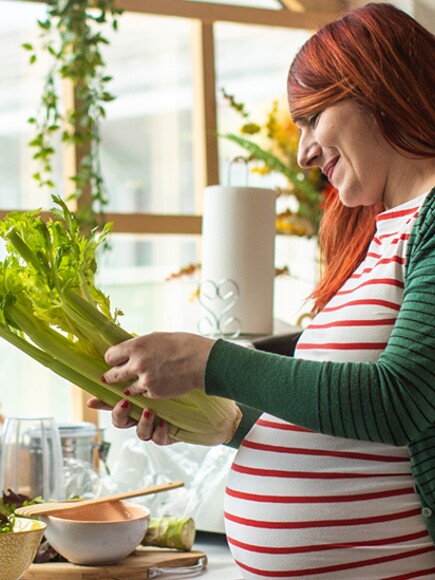As you probably already know, toddlers are incredibly active and energetic! For their body size, toddlers need to make every bite count with nutritious meals and snacks.
In order for toddlers to get the nutrients they need for growth and development, meals should provide essential nutrients in a small portion and be served frequently throughout the day - typically three balanced meals and two or three nutritious in-between snacks during the day1.
These tips can help you teach your toddler good eating habits that will stick with her for a lifetime:
1. Mix it up. A balanced diet includes a variety of foods. Follow Canada’s Food Guide to develop a healthy eating pattern.
2. Serve a rainbow of fruits and veggies. A variety of colourful foods expands your child’s tastes and provides a variety of nutrients for her tummy. Introducing new foods with old favourites may improve acceptance. For example, if she likes corn, try adding diced red pepper.
3. Let your child decide how much to eat. Teach your child to respect her appetite by letting her decide what and how much to eat. If she’s hungry, let her eat heartily. But if she’s full, let her stop.
4. Snack smart. Serve three small meals and two to three snacks a day. Because some toddlers get 25% of their calories from snacks, make sure to offer nutritious choices for every snack. Avoid high-energy, low-nutrient foods, like chips, cookies and sugary drinks.
5. Satisfy your toddler's thirst with water. Beverages are important for hydration, but too many of them can make your toddler too full to eat. Your toddler’s beverage choices should include water and pasteurized whole cow’s milk. Limit milk to 2 cups per day. Avoid fruit juice and other sweetened drinks.
6. Offer healthy fats and oils. Young children need energy from fat for growth and development. Incorporate healthy sources of predominantly unsaturated fat – fatty fish, avocados, food made with vegetable oils – into your toddlers diet.
7. Avoid adding salt. Even if you think your child’s food tastes too bland, remember to always prepare and serve foods with little or no added salt. Sodium also becomes a preferred taste once it’s introduced.
Understanding a toddler's eating habits
It’s important to understand toddlers’ eating habits and nutrient intakes. These are some tips if you feel your toddler is being a picky eater.
Fruits and vegetables contain essential vitamins, minerals and fibre. A diet high in fruits and veggies is important for healthy growth and development.
How to get it: Offer your toddler plenty of vegetables and fruits every day. Fruit and vegetable servings can be from fresh, frozen or pureed canned foods, but need to be cut up into small, easy-to-eat pieces. Remember you can still serve purées in toddler-favourite foods to add variety.
Sweetened beverages and desserts. There’s not a lot of room in your toddler’s diet for foods that provide energy but not many nutrients. Desserts, sweets and sweetened beverages can be high in calories compared to the micronutrients they provide, and can displace other nutritious foods in the diet.
How to get it: In place of sweets, serve your toddler more nutritious options such as fruits, yogurt and cereals and snacks that are made with whole grains.
Fibre plays a big role in your child’s digestive health. An adequate intake for toddlers is 19 grams per day2.
How to get it: Every day offer whole grains, and fresh, frozen, pureed or canned fruits and vegetables that are the right size and texture for your child.
Vitamin E is an important antioxidant that helps protect the cells in the body from damage.
How to get it: Foods that have Vitamin E include vegetable oils (canola, corn, soybean), avocados, whole grains and some leafy green vegetables (spinach, broccoli).
Potassium is a mineral that helps muscles work properly.
How to get it: Potassium is found in many foods, including potatoes, sweet potatoes, avocado, spinach, yogurt, bananas and citrus fruits.
Healthy fats contain important calories for growth. Fat also helps the body use vitamins, such as Vitamins A, D, E and K. A toddler’s diet should include about 30 to 40% of total energy intake from fat2, preferably mono- and polyunsaturated fats like those found in fish, avocados, and foods made with vegetable oils, such as canola and soybean oil. These healthy fats ideally can replace the saturated fats found in high-fat dairy products such as butter and fatty meats such as hot dogs, bacon and sausages.
How to get it: Try preparing foods with fat like soy or canola oil, that also have the omega-3 fat, alpha-linolenic acid, or offer condiments such as mayonnaise or salad dressings made with these oils. Remember to limit foods high in saturated and trans fats.
References:
1 Canadian Paediatric Society, 2019. Healthy eating for children. Available at: https://www.caringforkids.cps.ca/handouts/healthy_eating_for_children
2 Institute of Medicine. Dietary, Functional and Total Fiber. In: Dietary reference intakes for energy, carbohydrate, fiber, fat, fatty acids, cholesterol, protein, and amino acids. Washington: National Academies Press, 2005.
Join
Your parenting instincts, our support
SIGN UP & GET A CHANCE TO WIN
Sign up for Nestlé Baby & me and automatically be entered for a chance to win a $100* gift card!
For full details, please visit the Terms & Conditions.
PERSONALIZED EMAILS & SUPPORT
Receive customized email updates with useful info, special offers, and product suggestions to help guide you through each parenting phase and celebrate your milestones along the way.
HELPFUL TOOLS & RESOURCES
Need a hand with something? We’ve got you covered! Access our helpful and interactive parenting tools and resources like calendars, calculators, checklists, and healthy recipes in one convenient hub.
EXPERT GUIDANCE
We offer science-based advice and specialized nutritional guidance for every stage of the parenting journey—from preconception to toddlerhood.
*When registration is during pregnancy. If your baby’s already been born, expect to see your kit within a month
Still haven't found what you are looking for?
Try our new smart question engine.





